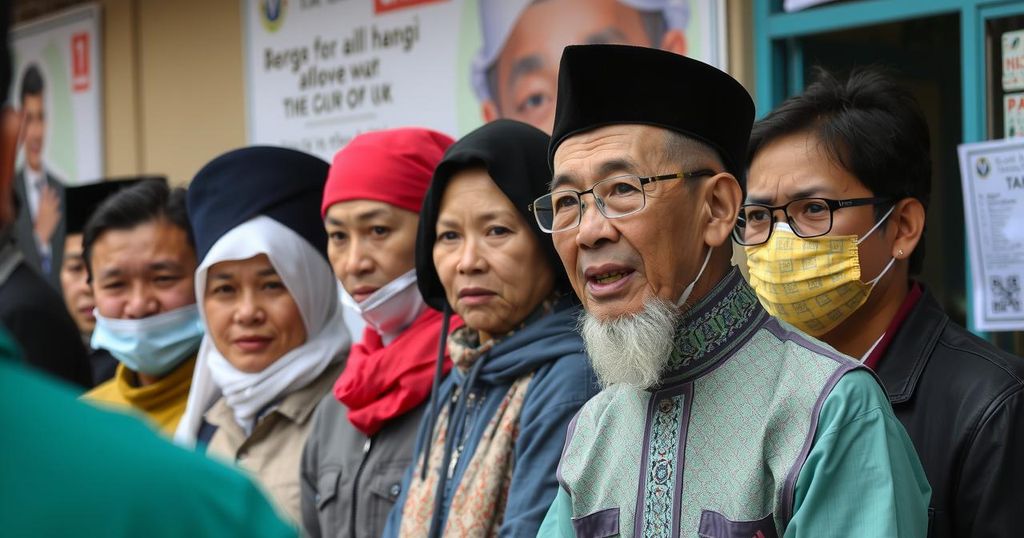Uyghur Detainees in Thailand Face Imminent Threat of Deportation to China
Uyghurs detained in Thailand are at risk of deportation to China, where they fear persecution and possible torture. In a public letter, 43 men have appealed for international assistance to stop their imminent deportation. Given the oppressive circumstances they face in Thailand and the uncertain treatment back in China, advocates urge the global community to intervene and protect their rights.
In Bangkok, Thailand, a group of 43 Uyghur men is expressing deep concern over the Thai government’s alleged plans to deport them to China, where they fear imprisonment and severe persecution. In a letter made public, the detainees urged international organizations to intervene and protect them from deportation, which they view as a direct threat to their lives. The letter articulated their fears, stating that they might experience abuse, imprisonment, or even loss of life if returned to China.
The Uyghurs, a predominantly Muslim ethnic group from China’s Xinjiang region, have faced growing oppression from the Chinese government, particularly following allegations of genocide related to systemic oppression and cultural suppression. Since 2014, the group has been held at an immigration detention center in Thailand after fleeing China, with a previous incident in 2015 leading to the deportation of Uyghurs to China under heavy international criticism. Currently, five of the detained have died under uncertain circumstances while still in detention, raising alarms over their treatment.
Conditions for the Uyghur detainees have reportedly been harsh, marked by inadequate meals, overcrowding, and a lack of sanitary products. They face restrictions on communication with family and legal representatives, prompting concerns about potential violations of international law as highlighted in a letter from UN human rights experts sent to the Thai authorities. Amid recent discussions regarding their deportation, information has surfaced indicating that discussions within the Thai government may be influenced by the 50th anniversary of diplomatic ties with China, which could lead to heightened urgency in their deportation process.
The Thai immigration police have made claims of providing adequate care for the detainees despite reports of their suffering. Activists continue to argue for the uncompromised rights of the Uyghurs, emphasizing their innocence and legal standing against potential deportation, which they view as unjust. Relatives of the detainees have expressed grave concerns, stating that the world appears indifferent due to geopolitical pressures relating to relations with China. As it stands, the future for these Uyghurs remains uncertain, with the looming threat of deportation prompting calls for immediate action from international bodies.
The present situation involving the Uyghurs in Thailand is a critical reflection of the broader humanitarian crisis faced by this ethnic group. The Uyghurs, who are primarily located in the Xinjiang region of China, have endured systematic repression characterized by cultural, religious, and ethnic discrimination, often leading to allegations of genocide. Following their fleeing to Thailand, many Uyghurs have sought asylum, but the history of deportation by Thai authorities, particularly evident in 2015, raises severe concerns over potential human rights violations. This current incident illustrates ongoing geopolitical complexities where domestic policies intersect with international human rights standards.
In conclusion, the plight of the Uyghur detainees in Thailand encapsulates the ongoing humanitarian crisis faced by this ethnic minority. With the Thai government’s recent actions suggesting a potential deportation, the international community is called upon to safeguard the rights of these individuals. The appeals from the detainees encapsulate their desperate situation, urging urgent intervention to prevent a catastrophic outcome that could lead to significant human rights abuses in China.
Original Source: apnews.com








Post Comment